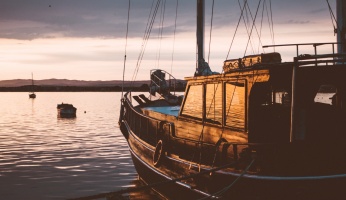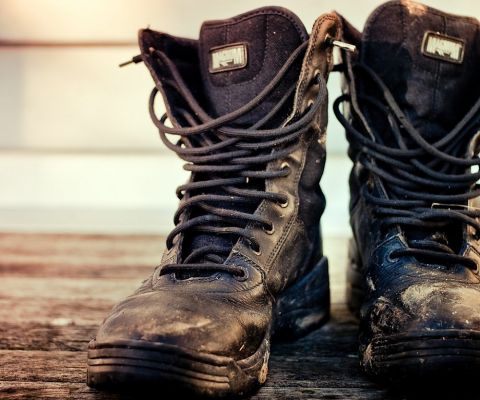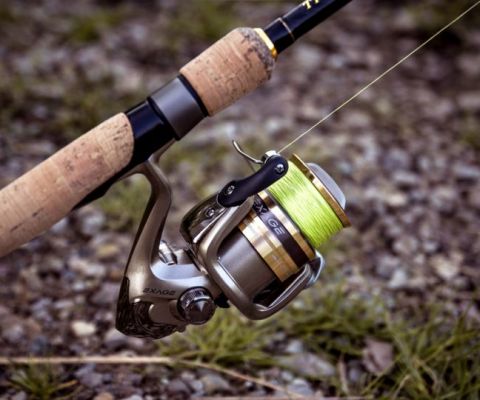Tips for Successfully Fishing in the Rain
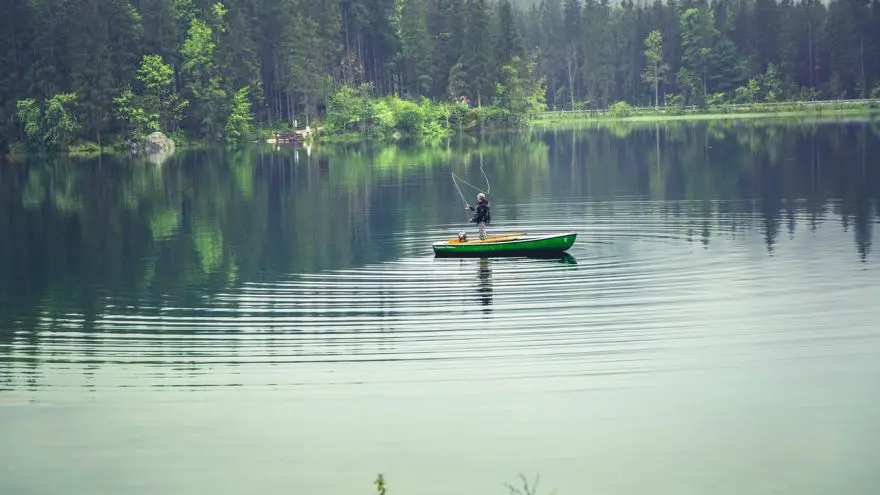 Tips for Successfully Fishing in the Rain
thegearhunt.com
Tips for Successfully Fishing in the Rain
thegearhunt.com
If you want to fish productively, you need to carefully plan for it. Anglers with experience will consider quite a few factors before they go out, including the weather, the temperature of the water, the phase of the moon, and familiarity with the area. Light rain might discourage a few anglers from getting to work fishing, but in actuality, it gives you a fantastic opportunity to catch fish. Here is a look at some tips for catching fish in the rain.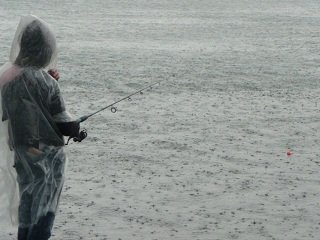
When you are planning your fishing trip in the rain, you need to take a few other things into consideration as well. These include things like the time you will be fishing, the movement of the water, the location of the bait, structures underwater, tides, water temperature, and more.
Fish before a storm. The time to fish that will be the most productive will be right before a storm hits when the barometric pressure will be low and can send the fish into what is known as a feeding frenzy. This might slow during the storm, but it might also pick right back up once the storm has passed, and the barometric pressure begins to rise again.
Wear the right gear. When you will be fishing in the rain, wear the proper rain gear. Quality gear that is waterproof will make all the difference in the world when it comes to being miserable or being comfortable. Try to stay dry and warm and you will be able to fish all day long. Out of all the tips that you might read regarding the subject of fishing in the rain, this is the one that is critical when it comes to having a positive state of mind.
Use contrast and color, make noise. Rain will muddy the water up, and this will decrease 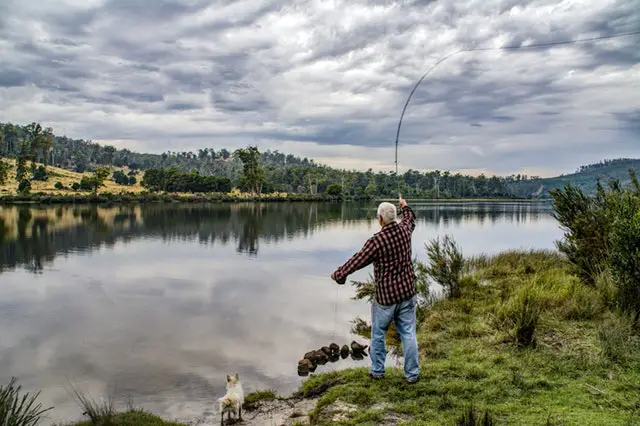 visibility and make it more difficult for the fish to see your bait. When you are using artificial bait, try to use bait that has bright colors and tackle that will make noise, like crankbaits or even popping corks, so that the fish will be able to locate it easier.
visibility and make it more difficult for the fish to see your bait. When you are using artificial bait, try to use bait that has bright colors and tackle that will make noise, like crankbaits or even popping corks, so that the fish will be able to locate it easier.
Fish the movement of the water. During a storm, the tide will be higher and rainwater will build up on the shore. Try to fish near spillways, inlets, or drains where the water flowing out will churn the bait up and the fish will be ready and waiting to feed.
Once the storm passes, fish the shoreline that is windblown. The wind will blow right into a shoreline while the storm is going on and that will push shellfish and bait into the ridges or shoreline. This will create the ideal feeding ground for fish.
Pick up speed. When fish are feeding aggressively, you will need to retrieve quicker or experiment with various speeds in order to determine what the fish will respond to.
Topwater. When fish are being active, they might be in the shallower water and feeding close to the surface. If this is the case, try to fish with a topwater or just a couple of feet below the surface of the water.
Safety first. When you are fishing in light rain, you will have good fishing. However, it isn’t advisable to fish when there are dangerous conditions with the surf or when it is lightning. You should stay away from lightning at all costs.
Fish and Weather
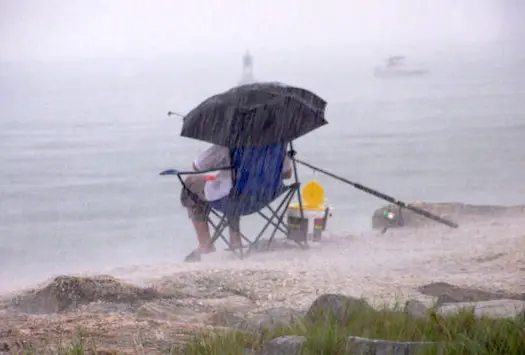 Fish, like quite a few other species of animals, have quite good senses when it comes to the weather. They can be incredibly sensitive to things like passing fronts and changes in the pressure.
Fish, like quite a few other species of animals, have quite good senses when it comes to the weather. They can be incredibly sensitive to things like passing fronts and changes in the pressure.
The weather that is ahead of a cold front will lead to good fishing conditions because of the pressure being lower. Fish are outstanding when it comes to sensing a change in the pressure, and this means that their activity will increase in the few days leading up to a cold front, which means that the conditions for catching them will also be good.
As the pressure falls ahead of a cold front, it causes air bubbles to be released in the water. Those bubbles can take small organisms and particles with them right up to the surface, and this will also bring the fish up so that they can feed on them.
Once the front hits and for a few days following it, the conditions will be poor. Typically, high pressure will follow a cold front, and this will make the fish more lethargic and they won’t move as close to the surface or even very far. The fish won’t be as likely to come up to the surface or feed as much during periods of high pressure like they will when the pressure is lower.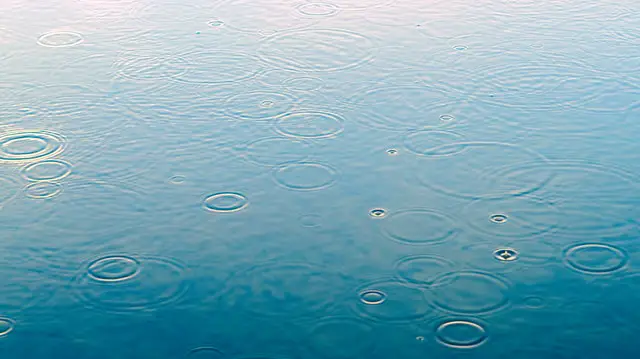
Warm fronts will also bring good conditions for fishing. Weaker winds and lower pressure will bring the fish up closer to the water’s surface and give them more life to swim for distances that are longer.
Rain can also have an affect on how the fish will bite. If you fish during a light rain, your casts will need to be a bit more discreet. Insects will also be more likely to be flying closer to the surface of the water both during and right after light rain, and this means that the fish will also be closer to the surface. This makes them easier to be caught. Also, rain can lead to more material of an organic nature to be flushed into the water and this will also lure the fish nearer to the surface to get a meal.
As always, before fishing anywhere and at any time, you need to know what any local and/or state regulations regarding fishing are. Always know what is required legally before you hit the water. This means getting properly licensed, and not fishing species that aren’t in season.
The fact is, if you are a serious fisherperson, a little bit of rain won’t stop you. It doesn’t matter if the sun is shining brightly or if there is a bit of rain, the fish will still need to eat, so why let a bit of the wet stuff spoil your fishing trip? You just need to keep a few things in mind.
Safety
This bears repeating. Yes, we all adore fishing, and at times, the weather can attempt to interfere. Because of this, we need to be sure that we do everything in our power to ensure that we are safe. You should never get out on the water when the conditions are rough or during a bad storm. There will always be more than enough days with great weather for fishing. Protect yourself and only get on the water when it is safe to do so. Check with any local weather advisories any time you will be getting on a boat. Also, you need to ensure that you have the right gear for fishing while it is raining. Waterproof boots and jackets, along with clothing that is warm will go a long way in terms of your comfort.
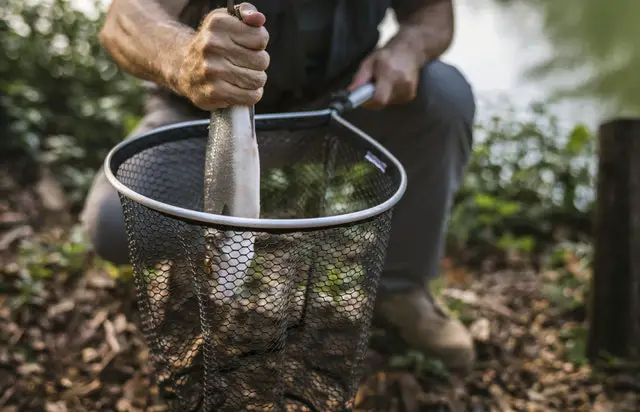
Lures
This one is a bit controversial. Some people prefer to use topwater lures in the rain while others think it is just the wrong thing to do. There are those who think that lures need to go a minimum of 5 feet below the water if you will be fishing in the rain. The theory behind this is that due to the rain, there is a lot of disturbance on the surface of the water, and this will defeat the purpose of lures of the top water type. It postulates that during the rain, the fish will be a minimum of 5 feet below the surface and will wait for the flies and bugs to sink to their level.
Trolling
When the weather is rainy, the oxygen levels in the water will rise, and this makes the fish more active. There is quite a bit of commotion that will be going on and using a lure that is slow moving will more than likely be overlooked. Troll just a bit quicker during conditions such as these if you want good results.
Know When to Say When
 This is basically another safety precaution. Know when you need to head in. Yes, a bit of rain can make the fish more active and get you some fantastic results, but you need to know when to quit. If the weather takes a turn for the worse, you need to head back to the shore or if you are already on the shore you need to head inside.
This is basically another safety precaution. Know when you need to head in. Yes, a bit of rain can make the fish more active and get you some fantastic results, but you need to know when to quit. If the weather takes a turn for the worse, you need to head back to the shore or if you are already on the shore you need to head inside.
The weather can have a massive effect on fishing and it is just a fact of life that when you will be heading out to fish, you need to check the forecast. You shouldn’t go fishing in a thunderstorm by any means, but a little rain never hurt anyone.
Rain can add an element to the conditions that can cause the fish to bite. Because of this, fishing in the rain can be great for anglers because of the rain breaking up the surface of the water, creating a current, and flushing nutrients into the water.
Bass
When there isn’t any sun, the bass will be more apt to roam. Because of this, bass that are typically locked into that one little sweet spot will be more likely to spread out during a storm. If you want to connect, you will need to speed whatever you are using up. This will allow you to cover more of the water during the day. If you happen to be fishing in the rain and using a spinnerbait, just really start burning it. If you are using worms, don’t allow them to sit for as long as you normally would. The fish will be a bit more aggressive when it is raining, so you don’t need to work as hard to get them to bite.
Drains
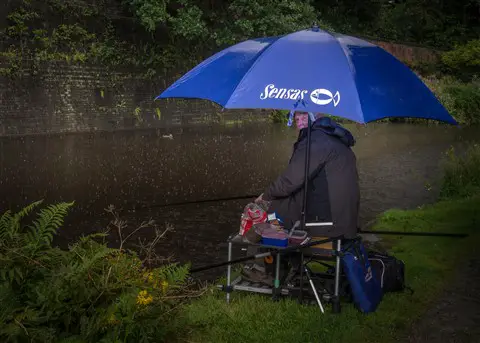
As mentioned above, the runoff from the land will bring more of the nutrients into the water. This will attract baitfish, which will then attract more of the fish you are trying to catch. Try to focus on areas where there is a runoff into the water… especially if it looks pretty clean. Fish will move quite a bit so that they can line themselves up to feed on bait along lines of mud, creek inlets, and culvert pipes. If you focus on areas such as these when it is raining, it can be incredibly effective.
Fishing in the rain can have its pros and cons, just like everything else. One of the big pros is actually the weather itself. Many anglers prefer to fish on days when there is abundant sunshine and clear skies, but there are times when a sky that is overcast and falling rain can give you a fishing experience beyond compare.
For those who relish a challenge, trying to catch fish in the rain offers a good one. It can be more difficult than fishing when the weather is good, and you will need to expend a bit of additional effort in order to catch your limit.
Be on the Lookout
The clarity of the water is important to consider any time you are fishing but especially when it is raining. Rain can and will affect the water clarity regardless of whether you are fishing on the ocean, lake, or river. Because of this, it might be a bit more difficult to see and catch the fish.
One good method to avoiding this is to look for water that still has clarity. For example, if you are in a lake, the upper end will generally become muddy before the lower end will. This means that you will have better luck fishing in the lower end.
Be Adaptable
Regardless of your best efforts, it is entirely possible that you won’t find any clear water during a storm. In circumstances such as this, you will need to adapt and make the best out of a poor situation. One good tip is to leave all of the painstakingly calculated lures and bring out those baits that will make noise, vibrate, and disturb the water.
This is due to the fact that when the water isn’t clear, the fish won’t be able to see the normal lures. Your best bet will be to attract the attention of whatever you are attempting to catch by making a bit of noise. You might also want to try a bit of stink bait.
Fishing in the rain can be done and can give you a great experience. You just have to be prepared for it and above all, be safe.
Sources
- YouTube, Topwater Fishing in the Rain!
- Earl’s Bait & Tackle, 3 Pro Tips for Fishing in the Rain
- Live Outdoors, How to Make the Best of Fishing in the Rain
- In-Fisherman, 10 Top Fishing Weather Conditions






